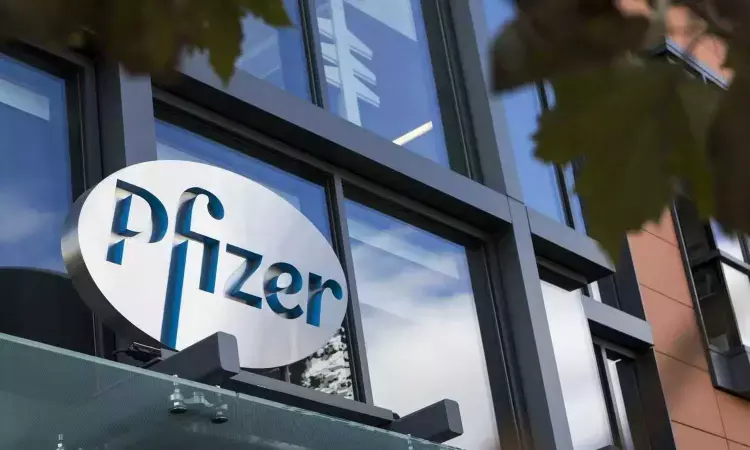- Home
- Medical news & Guidelines
- Anesthesiology
- Cardiology and CTVS
- Critical Care
- Dentistry
- Dermatology
- Diabetes and Endocrinology
- ENT
- Gastroenterology
- Medicine
- Nephrology
- Neurology
- Obstretics-Gynaecology
- Oncology
- Ophthalmology
- Orthopaedics
- Pediatrics-Neonatology
- Psychiatry
- Pulmonology
- Radiology
- Surgery
- Urology
- Laboratory Medicine
- Diet
- Nursing
- Paramedical
- Physiotherapy
- Health news
- Fact Check
- Bone Health Fact Check
- Brain Health Fact Check
- Cancer Related Fact Check
- Child Care Fact Check
- Dental and oral health fact check
- Diabetes and metabolic health fact check
- Diet and Nutrition Fact Check
- Eye and ENT Care Fact Check
- Fitness fact check
- Gut health fact check
- Heart health fact check
- Kidney health fact check
- Medical education fact check
- Men's health fact check
- Respiratory fact check
- Skin and hair care fact check
- Vaccine and Immunization fact check
- Women's health fact check
- AYUSH
- State News
- Andaman and Nicobar Islands
- Andhra Pradesh
- Arunachal Pradesh
- Assam
- Bihar
- Chandigarh
- Chattisgarh
- Dadra and Nagar Haveli
- Daman and Diu
- Delhi
- Goa
- Gujarat
- Haryana
- Himachal Pradesh
- Jammu & Kashmir
- Jharkhand
- Karnataka
- Kerala
- Ladakh
- Lakshadweep
- Madhya Pradesh
- Maharashtra
- Manipur
- Meghalaya
- Mizoram
- Nagaland
- Odisha
- Puducherry
- Punjab
- Rajasthan
- Sikkim
- Tamil Nadu
- Telangana
- Tripura
- Uttar Pradesh
- Uttrakhand
- West Bengal
- Medical Education
- Industry
Pfizer growth hormone drug Ngenla gets USFDA okay for pediatric patients

New York: Pfizer Inc. and OPKO Health Inc. have announced that the U.S. Food and Drug Administration (FDA) has approved NGENLA (somatrogon-ghla), a once-weekly, human growth hormone analog indicated for treatment of pediatric patients aged three years and older who have growth failure due to inadequate secretion of endogenous growth hormone. NGENLA is expected to become available for U.S. prescribing in August 2023.
Growth hormone deficiency (GHD) is a rare disease characterized by the inadequate secretion of the growth hormone somatropin from the pituitary gland, affecting one in approximately 4,000 to 10,000 children. Without treatment, children will have persistent growth attenuation, a very short height in adulthood, and puberty may be delayed. Children living with GHD may also experience challenges in relation to their physical health and mental well-being.
“For more than 30 years, Pfizer has been committed to supporting children and adults living with growth hormone deficiency, beginning with the delivery of a medicine that has long been a part of the standard of care,” said Angela Hwang, Chief Commercial Officer, President, Global Biopharmaceuticals Business, Pfizer. “We are excited to bring this next-generation treatment to patients in the United States, continuing our commitment to helping children living with this rare growth disorder reach their full potential.”
The FDA approval is supported by results from a multi-center, randomized, open-label, active-controlled Phase 3 study which evaluated the safety and efficacy of NGENLA when administered once-weekly compared to once-daily somatropin. The study met its primary endpoint of NGENLA non-inferiority compared to somatropin, as measured by annual height velocity at 12 months. NGENLA was generally well tolerated in the study and had a safety profile comparable to somatropin.
“The approval of NGENLA will be significant for children with growth hormone deficiency in the U.S. It holds potential to reduce the treatment burden that can come with daily growth hormone injections,” said Joel Steelman, M.D., Pediatric Endocrinologist, Cook Children’s Health Care System. “As a new, longer-acting option that has the ability to reduce treatment frequency from daily to weekly, NGENLA could become an important treatment option that can improve adherence for children being treated for growth hormone deficiency.”
“Throughout our collaboration with Pfizer, we have worked tirelessly toward our shared goal of helping children living with growth hormone disease and their families,” said Phillip Frost, M.D., Chairman and Chief Executive Officer, OPKO Health. “We are proud of the clinical development program that supported the FDA approval of NGENLA and are excited about its potential for these patients and their families as it becomes available in the United States.”
NGENLA is approved for the treatment of pediatric GHD in more than 40 markets including Canada, Australia, Japan, and EU Member States.
Read also: Pfizer-OPKO growth hormone deficiency treatment rejected by USFDA
Ruchika Sharma joined Medical Dialogue as an Correspondent for the Business Section in 2019. She covers all the updates in the Pharmaceutical field, Policy, Insurance, Business Healthcare, Medical News, Health News, Pharma News, Healthcare and Investment. She has completed her B.Com from Delhi University and then pursued postgraduation in M.Com. She can be contacted at editorial@medicaldialogues.in Contact no. 011-43720751


